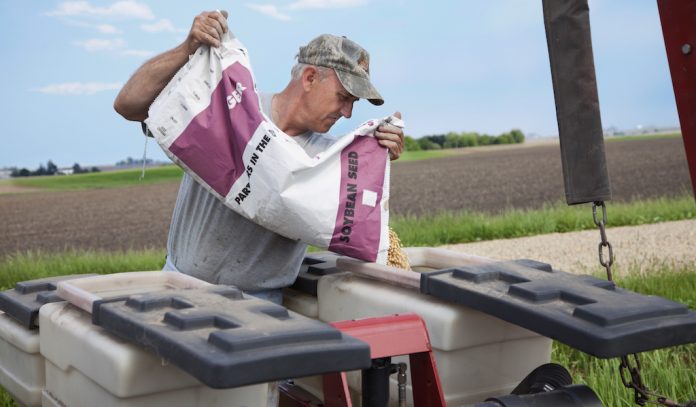SALEM, Ohio — It’s the time of year to start thinking about purchasing seeds for the next growing season. But how do you make sure the seeds you are buying come from a trusted source?
Quality seeds
The Pennsylvania Department of Agriculture recommends farmers steer clear of untested seed, sometimes packaged in an unlabeled brown bag, because its quality may be questionable. In addition to the risk of poor germination and inferior crops, the packages could contain unwanted weed seeds.
Last fall and earlier this spring, some farmers in western states discovered Palmer amaranth seeds had been included in pollinator mixes spread over land put into the Conservation Reserve Program.
“On any seed purchase, producers want to make sure they are buying quality seeds,” said John Armstrong, secretary-manager for the Ohio Seed Improvement Association.
Certification
The Ohio Seed Improvement Association (OSIA) — a third party field inspection and seed testing service — is the official seed certifying agency in Ohio.
According to the Ohio Revised Code, section 907, no person can used the words “certified,” “registered,” “foundation,” or any other term that would suggest a seed or tuber has been certified in their own labeling unless the seed has been certified by the (OSIA).
In Pennsylvania, Act 164 of 2005, also known as the Pennsylvania Seed Act, regulates the sale of plant seed in the commonwealth. It is illegal to sell seed in Pennsylvania that has not been tested and labeled.
Labeling
Ohio state law requires certified seed labels to include the grower’s name and address or producer number; Ohio Seed Improvement Association listed as the certifying agency; the origin of the seed, tuber or plant; the class, kind, variety, or germ plasm of the seed; and any other information required by the director of agriculture.
Pennsylvania state law requires that seed labels contain information such as complete name and address of the labeler, lot number, purity analysis, germination percentage, and the month and year in which the germination test was completed.
The label must be legible, in English and in a visible place on the outside of the container or bag.
Licensing
Any person labeling agricultural, vegetable or flower seeds for sale in Ohio must have a valid seed labeler permit. Applications should be filed with the Ohio Department of Agriculture annually, along with a $10 fee to obtain a license. Seed distributors — such as big box stores or farmer-owned stores — do not need a permit to sell labeled seed.
Pennsylvania seed distributors, whether an individual or a company whose name appears on the label, are required by law to purchase a $25 seed license each year from the Pennsylvania Department of Agriculture. Distributors must follow established regulations to ensure seeds will perform as labeled.
Have questions?
If a producer suspects the seeds they are buying are not certified, they can contact their state Department of Agriculture and send in a seed label to have it verified, according to Chris Holton, plant health supervisor in the grain, feed and seed section at ODA.
Find certified seeds
Both Ohio and Pennsylvania offer directories of dealers and seeds that have been certified by the departments of agriculture:
- The Ohio Department of Agriculture or call 614-28-6410
- Ohio Seed Improvement Association or call 614-889-1136
- The Pennsylvania Department of Agriculture or call 717-787-4894












